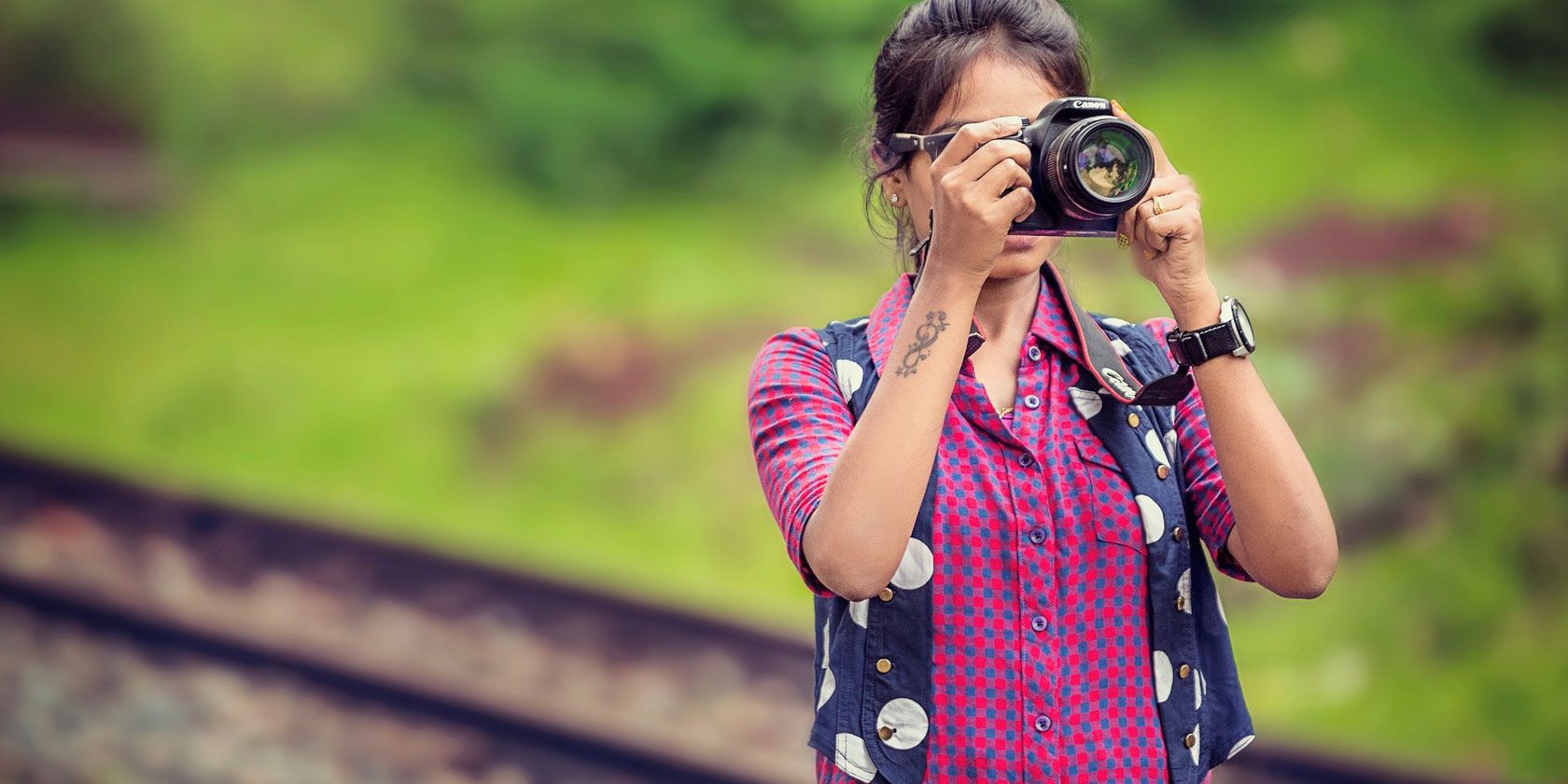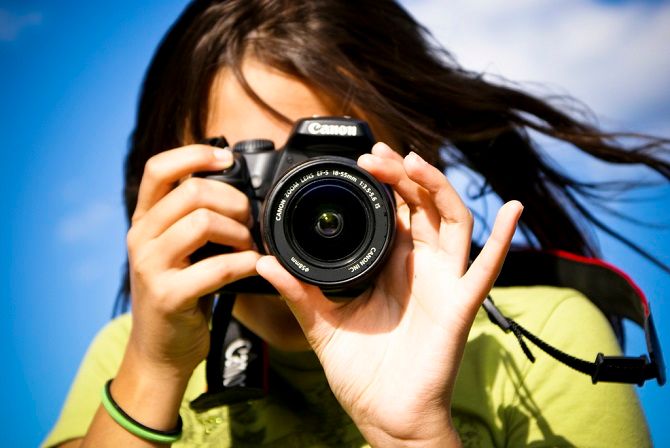The best way to improve your photography skills is to practice. But it's not the only way.
In fact, there are quite a few things you can do to boost your skills in 10 minutes or less.
Nothing can replace taking lots of photos and learning to self-critique them. But if you only have a few minutes, these seven tasks will help you perfect your craft.
1. Read Your Instruction Manual
You have to be a bit suspicious of those folk who read an instruction manual from start to finish just to plug in a Blu-ray player. It's always boring, right? The writers of these instructions have clearly never heard about the Plain English Campaign, because these little pamphlets from the underworld are designed to put you to sleep.
But wait! Because there's one manual that's worth reading: the one that accompanies your camera.
Seriously, this is essential reading. To get great photos, you have to know your camera.
You likely don't know what all those buttons are for on your camera. That is, unless you've pored over the manual before---and even then, you could probably do with a reminder because it's rare that a photographer uses all functions on a regular basis.
Knowing everything you can do with your camera doesn't take long, but it will certainly help in the field. You'll be better able to adapt to new situations by using the right settings. And that will improve your shots.
2. Learn These Two Rules of Composition
After getting to grips with your camera, you should master composition.
We all have slightly different ideas about what makes a good image: light, angle, subject---these are the things that make your work individual. But there are unifying factors in many fantastic examples of photography.
There are two key techniques you need to know: the Rule of Thirds and the Golden Ratio, the latter of which sounds a lot more complicated than it is. In fact, it's something that you probably do quite often already because you'll have picked it up from other famous images.
It's worth taking a few minutes to check these out because they'll really help when you're lining up a shot. It's up to you to decide which technique works best in situ.
Plus, once you know the rules, you can subvert them for your own artistic purposes.
3. Study Artists
Whatever your hobby or profession, it pays to study your peers and the people you look up to. You naturally pick up a lot of tips just from admiring others' work, whether knowingly analyzing something or subconsciously learning.
That's why you need to expose yourself to as much art and photography as you can. You can stroll around a museum (which admittedly takes longer than 10 minutes). You can Google well-known professionals in creative fields. Or you can simply take to sharing platforms like Instagram, Flickr, and Tumblr.
It doesn't matter, as long as you're immersing yourself in things you admire.
However, it's not always about admiration. Look at stuff you don't like, too. Ask yourself why it elicits that reaction. Why don't you like it? How can your dislike of an image advance your own photography?
4. Find Photographers on Twitter
On the same lines, you should follow photographers on Twitter. Seek out professionals and amateurs---both will help you improve by osmosis. Seeing other people's work will inspire you to get out there and produce the very best you can.
Aside from this, they'll likely share advice, personal struggles, and how they overcome those hurdles. It's humbling to note that everyone goes through the same difficulties. Looking up to a peer's portfolio is one thing; recognizing that they have similar issues makes you feel better about the problems you face.
Plus, it's important to remember that this is a community. Hobbies are fantastic, but they shouldn't be isolating. Being active on social media will mean you'll develop new friendships and get your work noticed by all the right people!
5. Create a Mood Board
This is all about inspiration. But inspiration isn't always about looking at pictures you wished you'd taken. It's also about exploring new themes.
A mood board is a collage consisting of many different materials that adhere to one subject. You could pick an event, or a place, or a color. It's an examination of a particular field. This can be created over a few sessions, developing as you see articles, images, and materials in everyday life.
You've heard of Picasso's Blue Period, right? In the early 1900s, the artist created a series of paintings in shades of blue or blue-green. This meant each one felt tinged with sadness---cold and haunted, reflecting Pablo's depression (possibly after the suicide of his friend and fellow artist, Carlos Casagemas).
A piece is always a reflection of its creator, and a mood board can open up possibilities for your photography.
6. Photograph the Sky
If you've got 10 minutes to spare, you're likely at home and surrounded by the stuff you see every single day. You probably won't feel especially inspired. You need something that presents a challenge.
Go outside. That's the greatest challenge you can hope to find.
The sky changes constantly. It's one of the things we all share, so finding something new and interesting about it is a special mission. It's almost testing you to capture its beauty. How you capture its light says a lot about you as a photographer.
And it's always a great idea to practice shooting the sky because it proves a magnificent backdrop for so many subjects. Photograph a spectacular sky and you've got the makings of an eye-catching image already.
7. Check Out Your Old Photos
Over time, you may become complacent. You'll be content with what you're doing, but not growing artistically.
This is the perfect time to scroll through some of your older pictures. Revisit photoshoots from a couple of years ago to see what you might've done differently and you'll see an improvement.
This is the case with most things, no matter your hobby or profession. For photographers, the effect is more instantaneous, and you'll be buoyed to find out that all the time you've spent obsessing over angles, ratios, and colors has paid off.
Heck, it's always the ideal time to revel in some nostalgia!
More Ways to Improve Your Photography Skills
When you've got a little bit of free time, it's tempting to flick through a newspaper or see what's new on Netflix. But you can advance your skills very simply just by taking 10 minutes out of your day.



